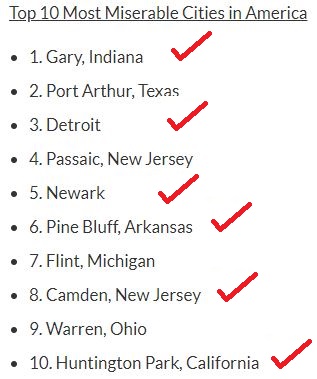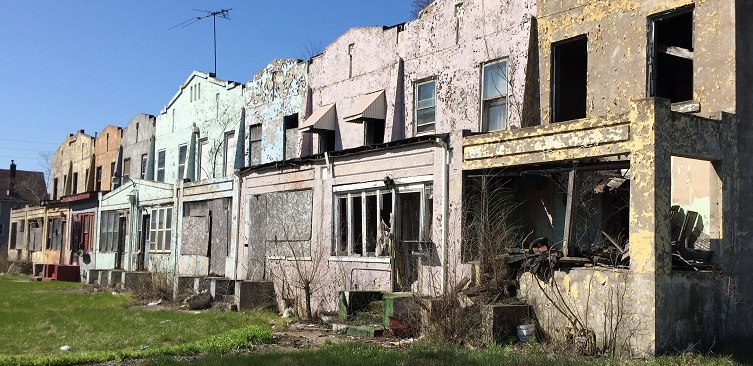If ever there’s an expression which conveys hopelessness, it’s “Africa Wins Again” (most often said when good intentions are turned to shit by, well, Africans).
I am leaving South Africa. I have lived here for 35 years, and I shall leave with anguish. My home and my friends are here, but I am terrified.
I know I shall be in trouble for saying so, because I am the widow of Alan Paton. Fifty years ago he wrote Cry, The Beloved Country. He was an unknown schoolmaster and it was his first book, but it became a bestseller overnight. It was eventually translated into more than 20 languages and became a set book in schools all over the world. It has sold more than 15 million copies and still sells 100,000 copies a year.
As a result of the startling success of this book, my husband became famous for his impassioned speeches and writings, which brought to the notice of the world the suffering of the black man under apartheid.
He campaigned for Nelson Mandela’s release from prison and he worked all his life for black majority rule. He was incredibly hopeful about the new South Africa that would follow the end of apartheid, but he died in 1988, aged 85.I was so sorry he did not witness the euphoria and love at the time of the election in 1994. But I am glad he is not alive now. He would have been so distressed to see what has happened to his beloved country.
I love this country with a passion, but I cannot live here any more. I can no longer live slung about with panic buttons and gear locks. I am tired of driving with my car windows closed and the doors locked, tired of being afraid of stopping at red lights. I am tired of being constantly on the alert, having that sudden frisson of fear at the sight of a shadow by the gate, of a group of youths approaching – although nine times out of 10 they are innocent of harmful intent. Such is the suspicion that dogs us all.
Among my friends and the friends of my friends, I know of nine people who have been murdered in the past four years. An old friend, an elderly lady, was raped and murdered by someone who broke into her home for no reason at all; another was shot at a garage.
We have a saying, “Don’t fire the gardener”, because of the belief that it is so often an inside job – the gardener who comes back and does you in.
All this may sound like paranoia, but it is not without reason. I have been hijacked, mugged and terrorised. A few years ago my car was taken from me at gunpoint. I was forced into the passenger seat. I sat there frozen. But just as one man jumped into the back and the other fumbled with the starter I opened the door and ran away. To this day I do not know how I did this. But I got away, still clutching my handbag.
On May 1 this year I was mugged in my home at three in the afternoon. I used to live in a community of big houses with big grounds in the countryside. It’s still beautiful and green, but the big houses have been knocked down and people have moved into fenced complexes like the one in which I now live. Mine is in the suburbs of Durban , but they’re springing up everywhere.
That afternoon I came home and omitted to close the security door. I went upstairs to lie down. After a while I thought I’d heard a noise, perhaps a bird or something. Without a qualm I got up and went to the landing; outside was a man. I screamed and two other men appeared. I was seized by the throat and almost throttled; I could feel myself losing consciousness. My mouth was bound with Sellotape and I was threatened with my own knife (Girl Guide issue from long ago) and told: “If you make a sound, you die.” My hands were tied tightly behind my back and I was thrown into the guest room and the door was shut. They took all the electronic equipment they could find, except the computer. They also, of course, took the car.
A few weeks later my new car was locked up in my fenced carport when I was woken by its alarm in the early hours of the morning. The thieves had removed the radio, having cut through the padlocks in order to bypass the electric control on the gates.
The last straw came a few weeks ago, shortly before my 71st birthday. I returned home in the middle of the afternoon and walked into my sitting room. Outside the window two men were breaking in. I retreated to the hall and pressed the panic alarm. This time I had shut the front door on entering. By now I had become more cautious. Yet one of the men ran around the house, jumped over the fence and tried to batter down the front door. Meanwhile, his accomplice was breaking my sitting- room window with a hammer. This took place while the sirens were shrieking, which was the
frightening part. They kept coming, in broad daylight, while the alarm was going. They knew that there had to be a time lag of a few minutes before help arrived – enough time to dash off with the television and video recorder. In fact, the front-door assailant was caught and taken off to the cells.
Recently I telephoned to ask the magistrate when I would be called as a witness. She told me she had let him off for lack of evidence. She said that banging on my door was not an offence, and how could I prove that his intent was hostile?
I have been careless in the past – razor wire and electric gates give one a feeling of security. Or at least, they did. But I am careless no longer. No fence – be it electric or not – no wall, no razor wire is really a deterrent to the determined intruder. Now my alarm is on all the time and my panic button hung round my neck. While some people say I have been unlucky, others say: “You are lucky not to have been raped or murdered.” What kind of a society is this where one is considered “lucky” not to have been raped or murdered – yet?
A character in Cry, The Beloved Country says: “I have one great fear in my heart, that one day when they are turned to loving they will find we are turned to hating.” And so it has come to pass. There is now more racial tension in this country than I have ever known.
But it is not just about black-on-white crime. It is about general lawlessness. Black people suffer more than the whites. They do not have access to private security firms, and there are no police stations near them in the townships and rural areas. They are the victims of most of the hijackings, rapes and murders. They cannot run away like the whites, who are streaming out of this country in their thousands.
President Mandela has referred to us who leave as “cowards” and says the country can do without us. So be it. But it takes a great deal of courage to uproot and start again. We are leaving because crime is rampaging through the land. The evils that beset this country now are blamed on the legacy of apartheid. One of the worst legacies of that time is that of the Bantu Education Act, which deliberately gave black people an inferior education.
The situation is exacerbated by the fact that criminals know that their chances of being caught are negligible; and if they are caught they will be free almost at once. So what is the answer? The government needs to get its priorities right. We need a powerful, well-trained and well-equipped police force.
Recently there was a robbery at a shopping centre in the afternoon. A call to the police station elicited the reply: “We have no transport.” “Just walk then,” said the caller; the police station is about a two-minute sprint from the shop in question. “We have no transport,” came the reply again. Nobody arrived.
There is a quote from my husband’s book: “Cry, the beloved country, for the unborn child that is the inheritor of our fear. Let him not love the earth too deeply. Let him not laugh too gladly when the water runs through his fingers, nor stand too silent when the setting sun makes red the veld with fire. Let him not be too moved when the birds of his land are singing, nor give too much of his heart to a mountain or a valley. For fear will rob him of all if he gives too much.”
What has changed in half a century? A lot of people who were convinced that everything would be all right are disillusioned, though they don’t want to admit it.
The government has many excellent schemes for improving the lot of the black man, who has been disadvantaged for so long. A great deal of money is spent in this direction. However, nothing can succeed while people live in such fear. Last week, about 10km from my home, an old couple were taken out and murdered in the garden. The wife had only one leg and was in a wheelchair. Yet they were stabbed and strangled – for very little money. They were the second old couple to be killed last week. It goes on and on, all the time; we have become a killing society.
As I prepare to return to England , a young man asked me the other day, in all innocence, if things were more peaceful there. “You see,” he said, “I know of no other way of life than this. I cannot imagine anything different.” What a tragic statement on the beloved country today. “Because the white man has power, we too want power,” says Msimangu. “But when a black man gets power, when he gets money, he is a great man if he is not corrupted. I have seen it often. He seeks power and money to put right what is wrong, and when he gets them, why, he enjoys the power and the money. Now he can gratify his lusts, now he can arrange ways to get white man’s liquor. I see only one hope for our country, and that is when white men and black men, desiring neither power nor money, but desiring only the good of their country, come together to work for it.
I have one great fear in my heart, that one day when they are turned to loving, they will find we are turned to hating.
Anne Paton
And Anne Paton had the great good fortune to be British. Most White South Africans don’t have that escape hatch, and will have to stay, and endure.

 Worryingly, a breakdown shows just 1.4% of reported rapes end up in someone being charged, just 3.3% of sexual offences and only 5% of thefts.
Worryingly, a breakdown shows just 1.4% of reported rapes end up in someone being charged, just 3.3% of sexual offences and only 5% of thefts.
